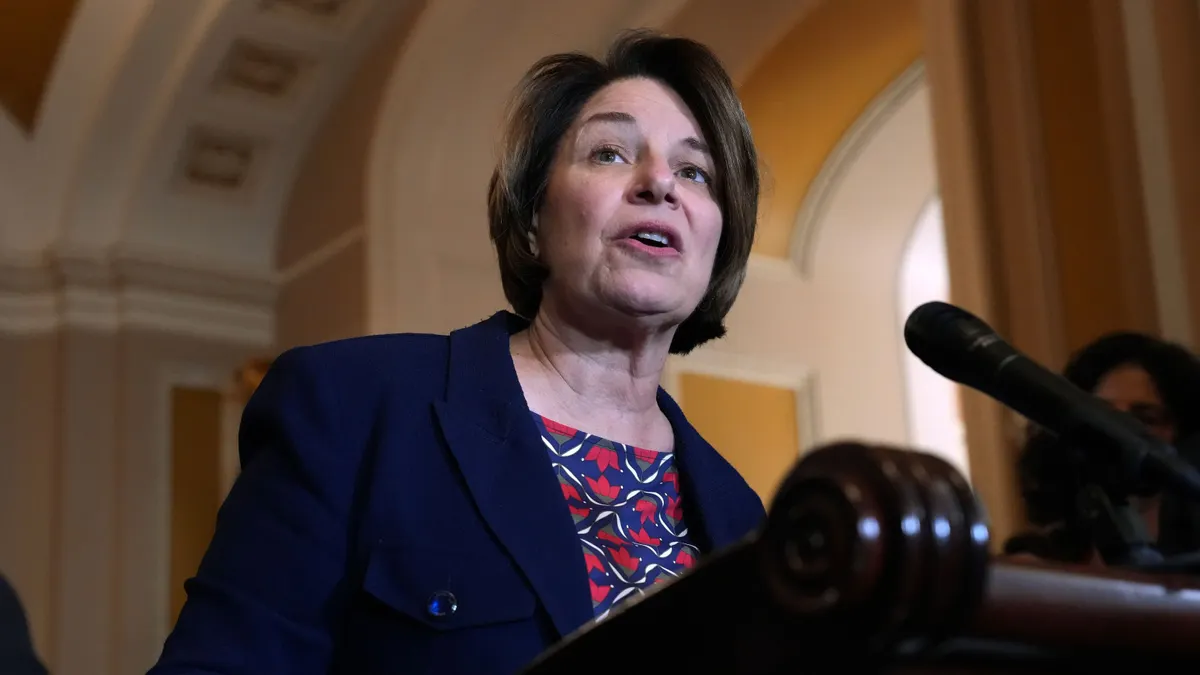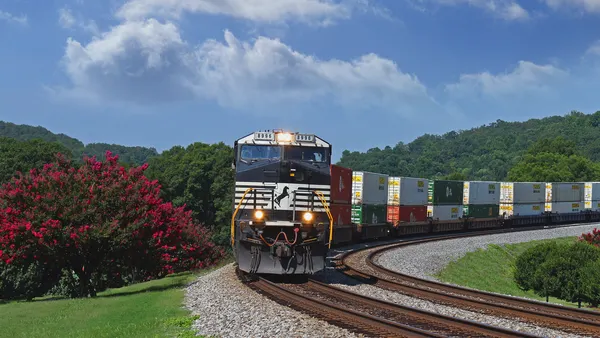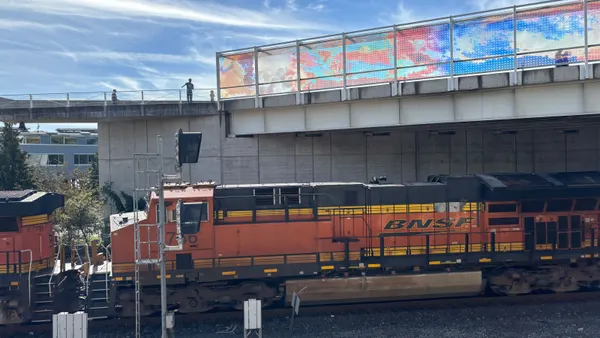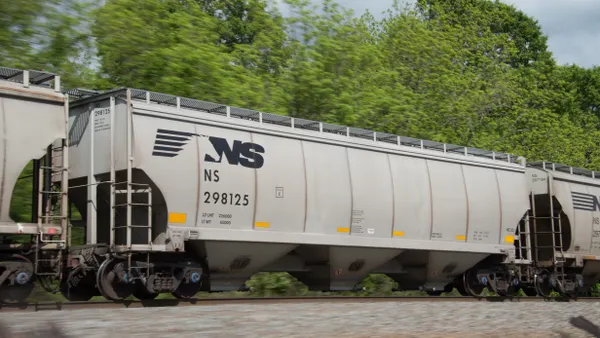Dive Brief:
- The proposed merger between Union Pacific and Norfolk Southern has caught the attention of the U.S. Senate.
- In a letter sent to the Surface Transportation Board last week, a bipartisan group of 18 U.S. Senators led by Sen. Amy Klobuchar (D-Minn.) and Sen. John Hoeven (R-N.D.) urged the federal agency to conduct “a rigorous and comprehensive evaluation” of the potential combination.
- “In conducting its review, we strongly encourage the STB to take into consideration the impact the proposed merger, if approved, may have on our nation’s agricultural producers, and on the STBs mandate to preserve long-term competition and ensure efficient, economically viable rail service,” the letter says.
Dive Insight:
The group of senators echoed concerns from some industry stakeholders and competitors such as CPKC that a UP-NS merger will erode competition and put undue pressure on rates and service, with the letter noting that four of a total six rail carriers currently control more than 90% of U.S. freight.
Another key area of focus for the lawmakers was the impact of a merger on the agricultural supply chain.
“Our producers already face limited competitive options for rail service,” the letter says. “Further consolidation could compound these challenges by reducing routing flexibility, constraining network fluidity, increasing market power, and limiting access for both producers and processors.”
The letter also highlights potential risks of service interruptions that could result from unforeseen challenges during the integration process, citing the 1996 merger of Union Pacific and Southern Pacific as an example.
According to the letter, post-combination challenges from the previous combination led to nine worker deaths and freight disruptions that lasted more than a year and a half, resulting in a $4 billion hit for the broader economy. Challenges could also emerge from a combined UP-NS network given it would handle more than 40% of U.S. freight, according to the letter.
“Service interruptions of this magnitude could have severe consequences, especially for agricultural producers,” the letter says. “Time-sensitive shipments during harvest could be delayed or spoiled, export windows could be missed, and access to global markets could be sharply reduced.”
The criticisms leveled by the senators fly in the face of the benefits touted by UP and NS, which argue the combination will accelerate intermodal transfers and cut carload transit times. However, despite numerous rail mergers since the 1980s, carload trip times and car utilization haven’t improved much in the last few decades, according to C. Tyler Dick, an assistant professor associated with the Texas Railway Analysis & Innovation Node at the University of Texas at Austin.
UP and NS first announced their intention to combine in July, saying they planned to submit a formal application to the STB within six months. The railroads aim to close the transaction in 2027.
Editor’s note: This story was first published in our Logistics Weekly newsletter. Sign up here.















